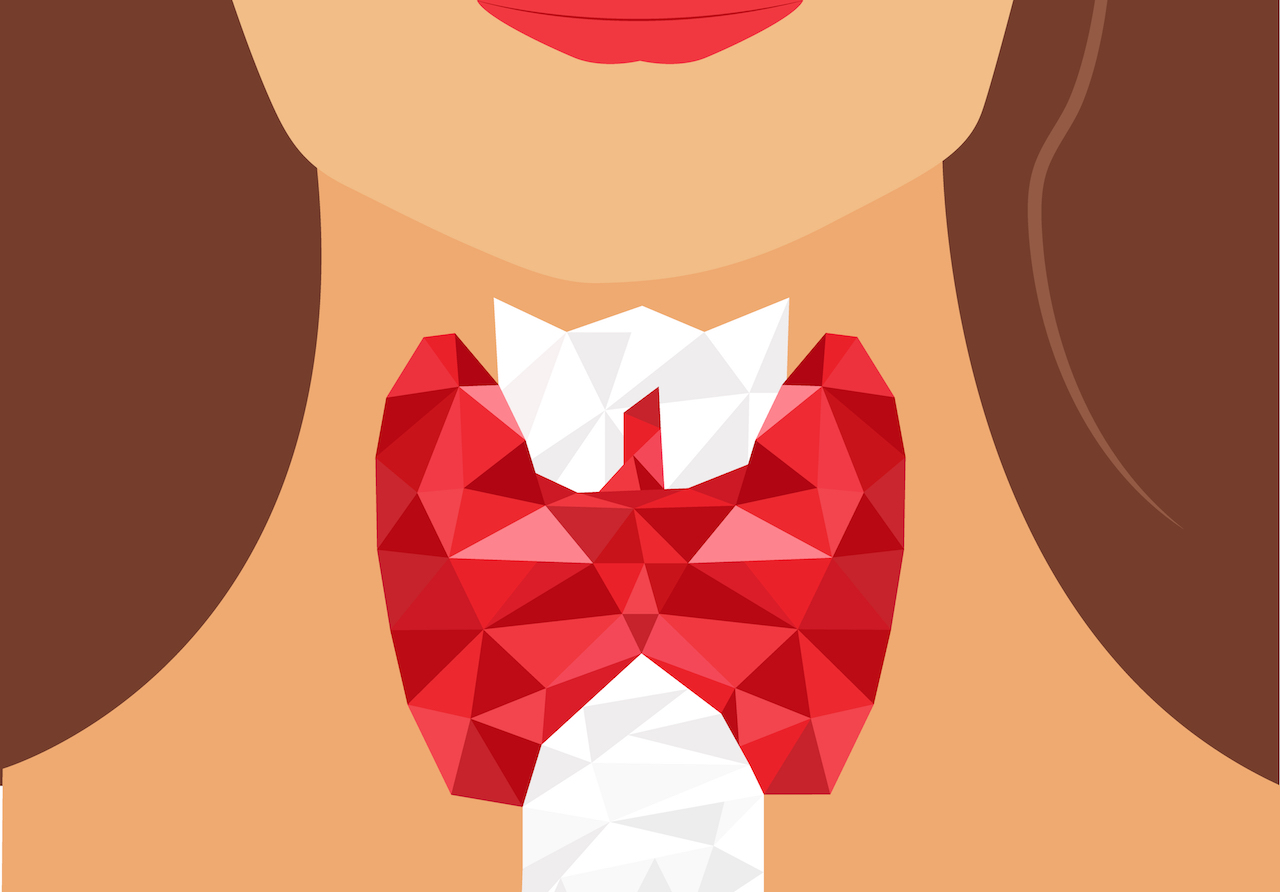Too little or too many hormones in your body can cause dysfunction. Hypothyroidism is a condition in the body where the thyroid gland doesn’t produce enough of the thyroid hormone, thyroxine.
The thyroid gland is an endocrine gland in your neck that produces, secretes and regulates hormones throughout the body.
What is the cause?
Thyroid hormones control and affect nearly every organ in your body, including the way your heart beats.
Your thyroid produces two main and important hormones:
- Triiodothyronine (T3)
- Thyroxine (T4)
A low level of these hormones can change the way your body processes fat. This can cause high cholesterol and clogging of the arteries that can result in a heart attack.
Common symptoms include:
- Weakness
- Depression
- Fatigue
- Joint and muscle pain
- Dry and pale skin
- Sensitivity to cold
- Constipation
- Unintended weight gain
- Heavy menstrual periods
- Thin, brittle hair and nails
Too little thyroxine
Normally the rate of thyroid hormone production is controlled by the pituitary gland, which sits at the base of the brain. When the supply of thyroid hormones is insufficient, the pituitary gland releases thyroid-stimulating hormone (TSH) to trigger the production of thyroid hormones in the thyroid gland.
If the thyroid gland is unable to produce the thyroid hormones, the pituitary gland releases more and more TSH. By measuring the amount of TSH, it’s possible to test if your thyroid is under-active. The condition is often linked to iodine deficiency; a trace that your body needs to maintain thyroid function. Your body only needs a small amount of iodine, but it’s still important for your overall health.
Hypothyroidism is more common in women over 60; people with other thyroid problems, people who have a family history of thyroid disease, an autoimmune disease, who’ve been treated with radioactive iodine or anti-thyroid medication, or has had radiation to the neck or upper chest.
Triggers
- Hashimoto’s thyroiditis (Hashimoto’s disease). This is an autoimmune disease. Your immune system sees the thyroid gland as a foreign invader and starts to attack. This leads to inflammation of the gland. If the attacking continues, you may not be able to produce thyroid hormones; which will result in the development of hypothyroidism.
- Congenital hypothyroidism is a thyroid hormone deficiency that’s present at birth. It results in a partial or complete loss of function of the thyroid gland.
- Chemical or surgical damage to the thyroid gland or parts of it.
- Irradiation. This is a common treatment for hyperthyroidism. It gradually destroys thyroid cells which can eventually lead to hypothyroidism.
When to see a doctor
If you’re feeling tired for no reason or have other signs or symptoms of hypothyroidism, see your doctor. You’ll also need to see your doctor for periodic tests for the function of your thyroid if you’ve had previous thyroid surgery, treatment with radioactive iodine or anti-thyroid medications or radiation therapy to your neck, upper chest or head.
Good to know
Hypothyroidism can cause fertility problems. If you’ve had trouble falling pregnant, get your thyroid tested.

